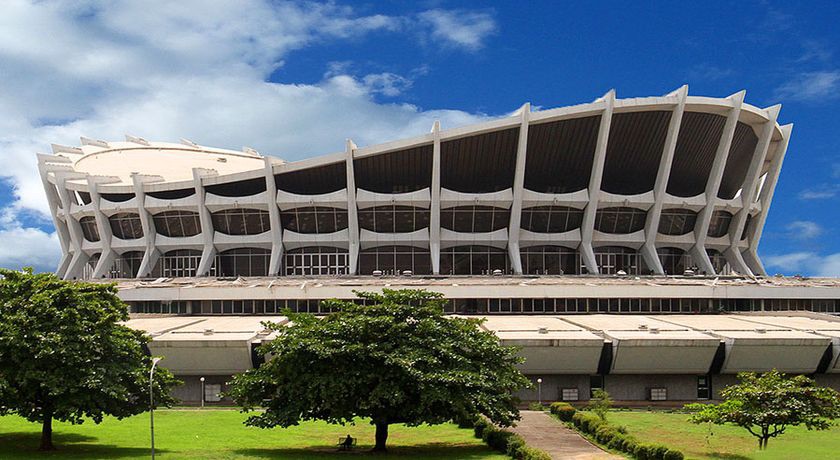Members of the Bankers Committee are on the verge of completing the renovation and upgrading of facilities at the National Theatre, Iganmu, Lagos; a development that could be best described as the restoration of national pride.
The Committee disclosed this to the media on Tuesday in Lagos during a media parley and tour of the new-look National Theatre complex.
The renovation exercise commenced in July 2021 following approval by the Federal Government and the subsequent handover of the national edifice to the Bankers’ Committee.

The facilities were upgraded to match the best standards of theatre and performance in the world. The entire Heating, Ventilation, and Air Conditioning (HVAC) system was replaced, fire safety standards, upgraded power, water supply, and sewage systems were all replaced. Upgrade of interior design with the installations of Audio Video Lighting (AVL), world stage engineering system, 11 lifts, solar power, new furniture for spaces and restoration of artworks including those on the internal wall panels and the building façade.
The renovation works cover different spaces, including the 4,000-seater main bowl, over 3,000 seater banquet hall, 2-nos. exhibition halls, 3-nos. cinemas, VIP spaces, actors’ changing rooms, industrial kitchen, over 300 new toilet cubicles, clinic, fire station, lobbies within the four entrances and extensive roof repairs.
Speaking on the Bankers’ Committee’s restoration of the National Theatre, Segun Agbaje, group chief executive officer, Guaranty Trust Holding Company Plc, said, “I don’t think there are many countries in Africa that have the talent that we have in entertainment and the arts. All you can do when you have talented people is to give them a platform to showcase their best. We will try to give a platform, where Nigerians who are in my opinion the best, have a chance to show the world that they are the best.”
The National Arts Theatre was constructed by the military regime of General Yakubu Gowon and completed in 1976 by the Olusegun Obasanjo administration. The completion coincided with the hosting of the Second World Black and African Festival of Arts and Culture (FESTAC 77) in January 1977.
Olaitan Ibrahim